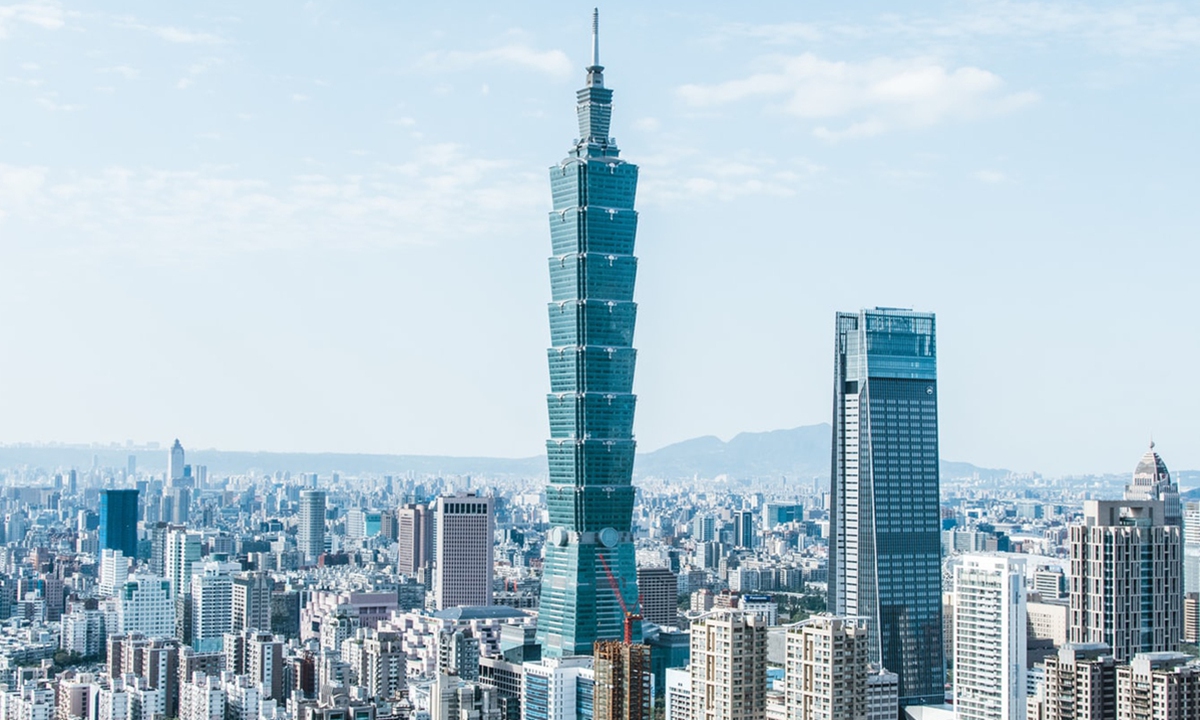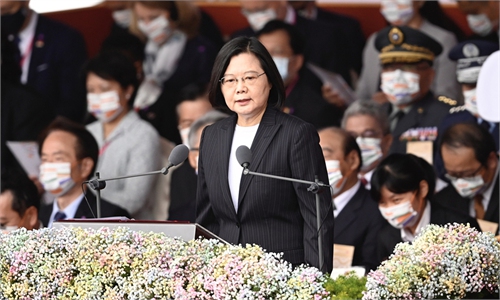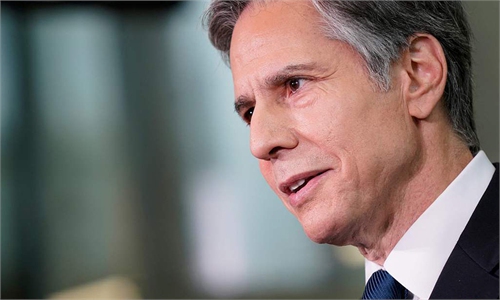
Taiwan Photo: Unsplash
The leader of the external affairs authority of Taiwan, Joseph Wu, started his trip to visit Central European countries of the Slovak Republic and Czech Republic on Sunday. Before his visit, Wu tweeted that the island of Taiwan, the Czech Republic, and Slovakia, "similarly aspire to freedom, human rights and rule of law" and, together, they will become "unstoppable forces for good."
Through Wu's words and actions, it is clear that he intends to take advantage of the anti-China stance of a small group of politicians in countries like the Czech Republic to advocate the secessionist ideas of the island's Democratic Progressive Party (DPP).
To be more specific, Wu's visit reveals the DPP authority's four evil intentions.
First, Wu's visit is a trip about the "checkbook." On October 13, the Czech Senate Committee on Foreign Affairs, Defense and Security approved a resolution to strengthen cooperation with Taiwan. Wu was invited to visit the country. Along with Wu, the head of the island's "National Development Council," Kung Ming-hsin, led a delegation of 66 officials to "boost trade and economic ties with central and east European countries," according to Taiwan media. The delegation attended the fifth "Czech Republic-Taiwan Bilateral Economic Consultation Dialogue" and a bilateral trade and investment forum with Lithuania.
In the words of the DPP authority, Wu's visit and the trade delegation's itinerary share the same goals of "expressing the strategic importance of Taiwan, its economic strength and its resolve to defend its democracy." Therefore, it can be said that the results of Wu's visit to Europe is backed by the "checkbook."
Second, Wu's visit is a trip about the convergence of China's secessionist forces. Later this month, the Inter-Parliamentary Alliance on China (IPAC), a group of anti-China lawmakers from the West, will hold a meeting in Rome. The leading figures of many secessionist groups that aim to divide China will attend the meeting, and Wu was invited to it as well.
Wu, a leading pro-Taiwan secession figure, has repeatedly attacked the Chinese mainland and advocated secessionist ideas through this anti-China coalition. With Wu's participation, a combination of secessionists of Taiwan, Tibet, Xinjiang and Hong Kong has formed. This is a serious provocation against the one-China principle by the anti-China forces, such as the IPAC.
Third, Wu's visit seeks to divide Europe's China policy. In recent years, China-Europe relations have been seriously damaged by a few European politicians. In fact, Europe's policy toward China has also shown some degree of toughness and anxiety.
Against this background, the DPP authority is attempting to divide Europe's China policy further by sending Wu to conduct a political tour in Europe. No matter what activity Wu takes part in, his anti-China ideas will become a hot topic. Meanwhile, anti-China politicians in Europe will likely use Wu's visit to shore up each other with Taiwan's secessionist forces. This may lead to more conflicts between China and some European countries. It could even poison the European Union as a whole.
Fourth, Wu's visit took advantage of the turbulent political situation in the Czech Republic. Earlier this month, the Czech Republic held a parliamentary election. The ruling party narrowly lost it. As a result, a coalition government will be formed, and the parties of "pro-Taiwan" Mayor of Prague Zdenek Hrib and President of the Senate Milos Vystrcil will be included. With Czech President Milos Zeman currently suffering from a health issue and the post of prime minister remaining empty, the political situation in the country is quite unstable.
The DPP authority might have taken this as an opportunity to further enhance the relationship between Taiwan and the Czech Republic. This is why it hastily decided to allow Wu to visit the country. Obviously, the DPP aims to exploit the window period in the Czech political scene to create an illusion that Taiwan has expanded its international space.
In short, Wu's visit is another carefully choreographed performance to advocate "Taiwan secession" by the DPP authority. It comes right after Tsai Ing-wen mentioned the "two states" theory in her "Double Ten" (October 10) speech. The DPP authority is busy making Wu do "public relations" around the globe instead of caring about people's lives on the island. It should instead think critically about who needs to be held accountable for the fire in Kaohsiung that killed 46 on October 14.
The author is a research fellow at the Institute for Taiwan, Hong Kong and Macao Studies of the Shanghai Institutes for International Studies. opinion@globaltimes.com.cn


